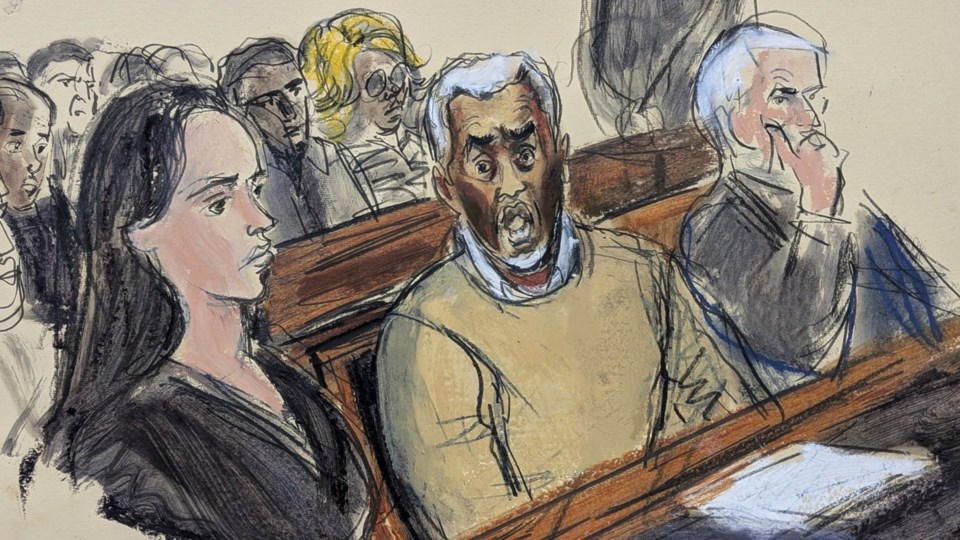NEW YORK (AP) — Prosecutors said they now expect music mogul Sean “Diddy” Combs could face a prison sentence “substantially higher” than the four to five years they once thought he was likely to face after his conviction on two prostitution-related charges.
They made the observation late Thursday in a Manhattan federal court written submission in which they also opposed Combs' request this week to be released on $50 million bail while he awaits an Oct. 3 sentencing.
In early July, Combs, 55, was acquitted of racketeering conspiracy and sex trafficking charges carrying potential life prison terms but was convicted of two counts of transportation to engage in prostitution for arranging for girlfriends and male sex workers to travel to engage in sexual encounters that he filmed.
Each prostitution-related charge carries a potential maximum 10 years in prison.
Prosecutors said after the verdict that they thought federal sentencing guidelines meant to prevent wide disparities in sentencings for the same crimes would likely call for a prison term of four to five years. But they said Thursday they believe the guidelines range “will be substantially higher,” raising the risk Combs will flee.
Judge Arun Subramanian will have wide latitude in determining a sentence and can choose to ignore the guidelines, which are not mandatory. Combs' lawyers have said they believe the guidelines, if properly calculated, will call for 21 to 27 months in prison.
On the day of the verdict, prosecutors won a bail fight after defense lawyer Marc Agnifilo argued Combs should be freed immediately on bail.
Subramanian denied the defense request, saying Combs had not met the burden of showing by clear and convincing evidence a “lack of danger to any person or the community.” But he said Agnifilo could renew the request.
In doing so Tuesday, Agnifilo cited other cases he said were comparable to Combs' conviction in which defendants were granted bail. And he cited severe conditions at the Metropolitan Detention Center in Brooklyn, where Combs has been held since his September arrest at a New York hotel.
He also said Combs was being treated unfairly for engaging in a “swingers” lifestyle in which he and his girlfriends sometimes invited male sex workers to join them in multiday marathon sex performances.
Prosecutors said in their filing Thursday that Combs' conviction on the prostitution-related counts carried a mandatory requirement that he remain in jail prior to sentencing, unless he could prove exceptional circumstances, which they said he cannot.
They said he should also remain in prison as a danger to the community, a claim that Agnifilo disputed in his papers.
“Sean Combs will not be violent to anyone. As we said in court, this jury gave him his life back, and he will not squander his second chance at life, nor would he do anything to further jeopardize his seven children not having a father, and four of his children not having a parent at all,” Agnifilo wrote earlier this week.
Prosecutors also said conditions at the federal lockup had improved considerably before Combs was arrested. A federal judge in January 2024 had blasted conditions at the jail, including its extensive lockdowns and inadequate medical care.
Prosecutors said cases cited by Agnifilo in which other defendants received bail were not comparable to the crimes Combs was convicted of carrying out, particularly because of his propensity for violence.
“The defendant's extensive history of violence — and his continued attempt to minimize his recent violent conduct — demonstrates his dangerousness and that he is not amendable to supervision,” they wrote. “The defendant utterly fails to establish by clear and convincing evidence, as required, that he does not pose a danger to the community.”
Larry Neumeister, The Associated Press


